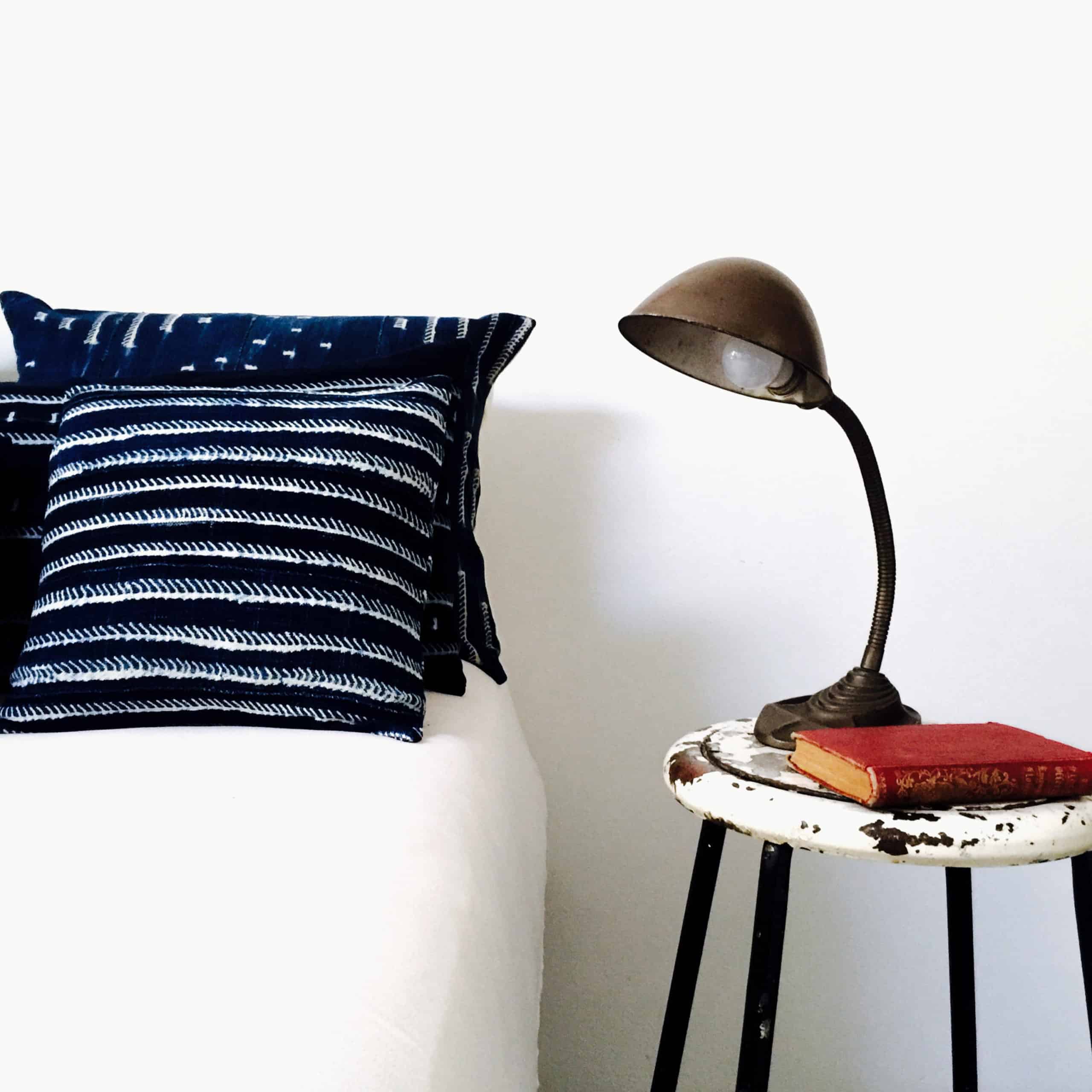RAPHAËL AND NOËLIE SAWADOGO
Designers and weavers
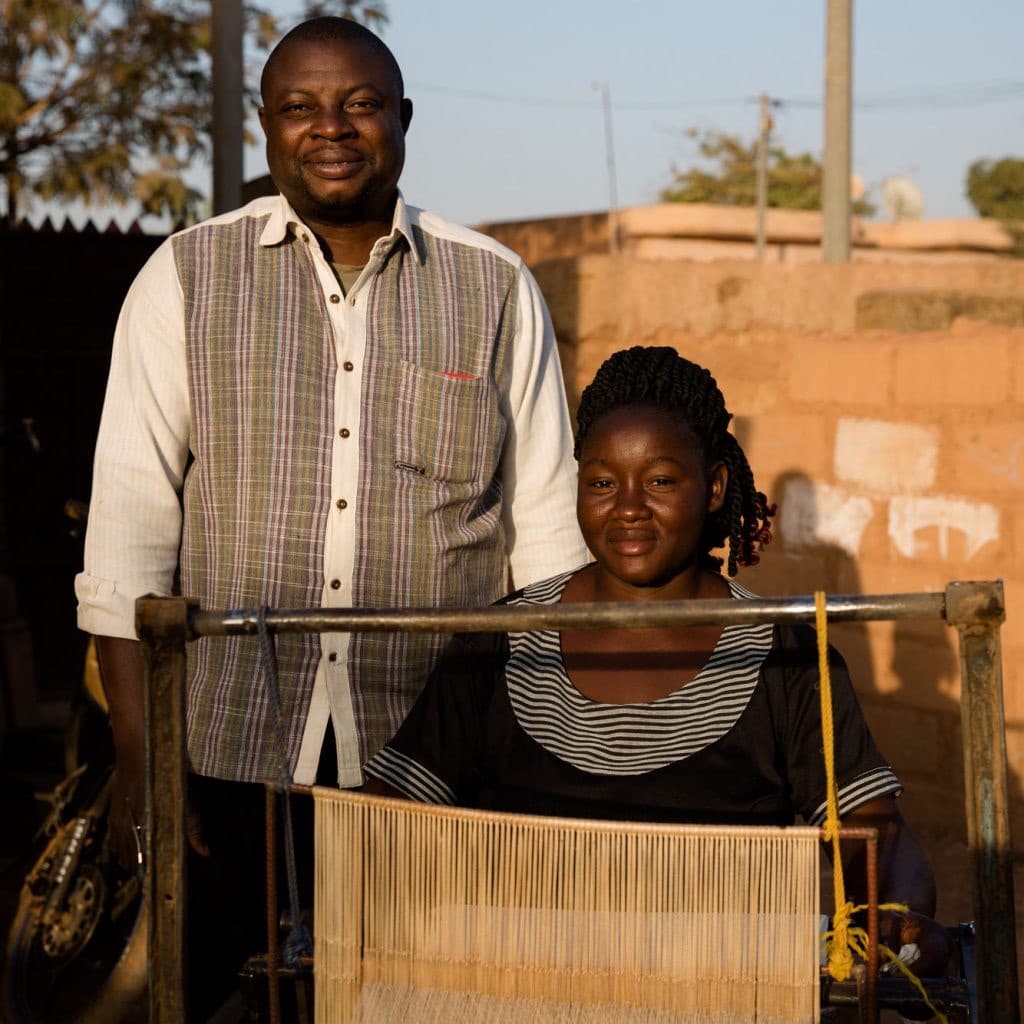
“I learned to dye and I liked it, I love creating!”
Raphaël Sawadogo has already lived more than ten lives. In wood craftship, in certification, abroad, he worked in many different jobs, sometimes very well paid, until becoming an employee of a weaving workshop. “I was the boss’s right-hand man, a long-time friend, I helped him in particular with administrative management.” Then his friend tells him of an imminent departure to the United States and the closure of the workshop. “I was in danger!”. It was four years ago. He decides to learn dyeing, and it’s a revelation. “I really like it, and it provides a living for my family.”
At his side, Noëlie, his wife, creates and weaves the prototypes. The couple is settled in the courtyard of their house in Cissin, Ouagadougou. A 10-meter loom is there, carrying the threads of the creation in progress.
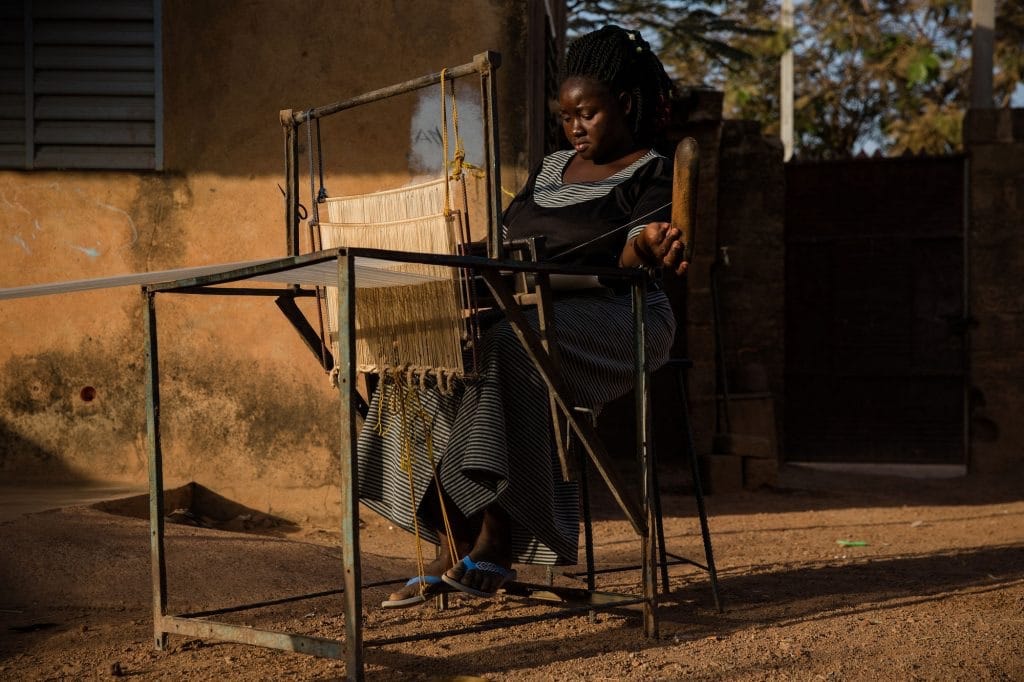
“We weave Faso dan Fani, from local cotton, organic one as often as possible.”
Faso dan Fani, which has returned to fashion thanks to the national preference given to local creations, has not generated any increase in activity among them. “But we have added value: we weave 40 thread, while the others weave 20.” A much finer and more elegant thread than the traditional dan Fani, which may be a little heavy to carry sometimes.
Raphaël and Noëlie also rely on sobriety to differentiate themselves: “no golden threads here, nor garish patterns”. In fact, their loincloths are either “dirty white”, that is to say ecru, or pastel colors. Because Raphaël favors the natural dyeing of his yarn, based on leaves, roots, bark or stones. And even when he has to use chemical dyes for financial reasons, he sticks to a range of colors close to those obtained by natural dyes. Once the yarn has been cleaned by boiling, the pattern created by Noëlie and the prototype woven, four women will weave the loincloths which will be sent to customers.
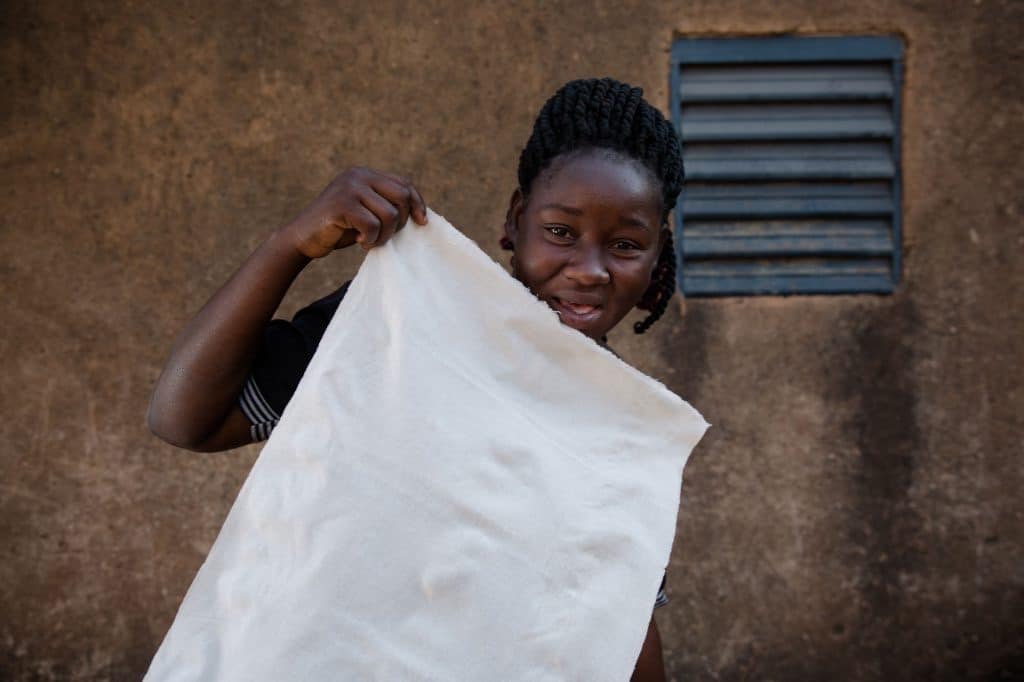
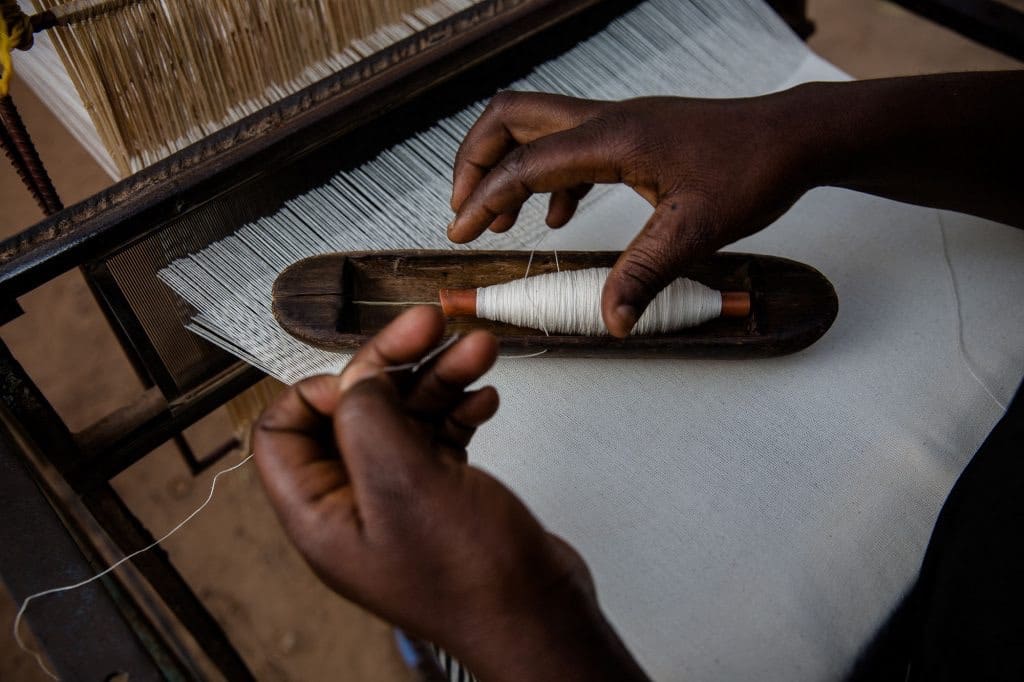
Raphaël works with individuals but also couturiers, and not the least. François 1er, a renowned Burkinabè designer, was seduced by the finesse of his Dan Fani and the delicacy of his patterns. “And we are among the only ones to weave 45 cm wide, where the others tend to weave 30 cm wide.” The Sawadogo couple’s demands for final quality and the difficulty of weaving such a fine thread mean that some women refuse to weave, because “you have to be calm, listen to advice and accept criticism” emphasizes Raphaël.
In March 2016, the revival of Dan Fani and the presidential decision to produce a national loincloth in this cotton caused a thread break. “There were none left, anywhere”, remembers Raphaël, who had to part with 6 of his weavers. Today, they have settled back into other activities and do not wish to return. Raphaël is therefore faced with the problem of every growing craftsman. Not enough hands to increase the quantity, and therefore not enough income to hire 6 new employees and invest in the equipment that goes with them. But the tenacity and professionalism of the couple suggests that this state will not last forever, thanks to their numerous recommendations.
Moreover, the objectives are clear: “I have acquired a small piece of land, I want to build a workshop there to bring together all the stages from dyeing to the exhibition and sale of finished products.” And thus make the courtyard of their little house playable for their three children and the dog Tex.
“Faso Dan Fani weaving requires seriousness and precision to obtain a quality product that will stand out.”

